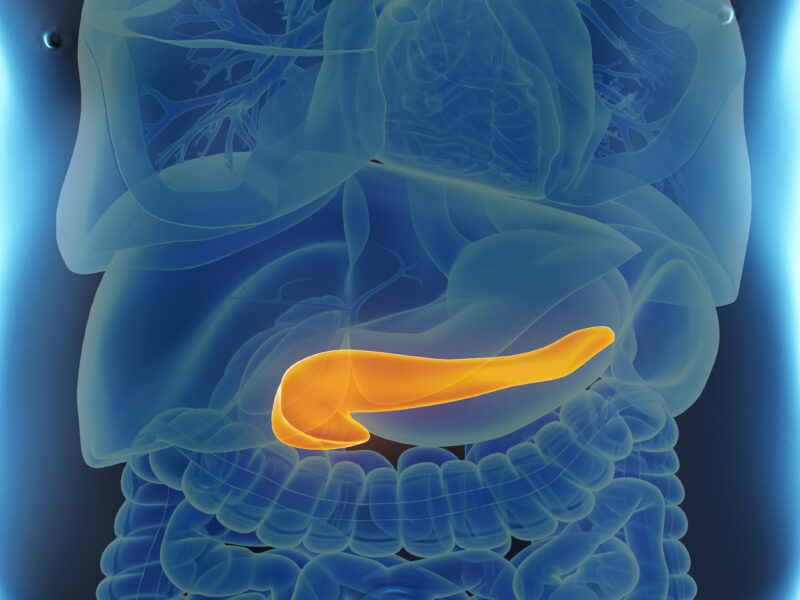Infliximab Biosimilars Improve Growth Outcomes in Children With Inflammatory Bowel Disease
Infliximab Biosimilars Improve Growth Outcomes in Children With Inflammatory Bowel Disease https://pediatricsnationwide.org/wp-content/uploads/2021/03/AdobeStock_104336092-1024x683.jpg 1024 683 Mary Bates, PhD Mary Bates, PhD https://secure.gravatar.com/avatar/c6233ca2b7754ab7c4c820e14eb518c8?s=96&d=mm&r=g- April 10, 2024
- Mary Bates, PhD

Treatment with either the infliximab originator or a biosimilar improves clinical and growth outcomes.
In a new study, researchers at Nationwide Children’s Hospital report that children with inflammatory bowel disease showed similar growth and clinical outcomes whether they were treated with the infliximab originator or a biosimilar agent. The results add to the growing literature supporting the efficacy and safety of infliximab biosimilars for pediatric patients.
Over the last two decades, the biological drug infliximab has revolutionized the treatment of inflammatory bowel disease (IBD) in adults and children. More recently, several biosimilar drugs with similar efficacy have become available to patients at decreased cost.
Children with IBD treated with infliximab show improvements not only in clinical outcomes, but also in growth. While infliximab biosimilars are similarly effective clinically as the infliximab originator, less is known about their impact on growth outcomes.
“Growth is an important outcome for children with IBD,” says Ross Maltz, MD, a pediatric gastroenterologist at Nationwide Children’s and senior author of the study. “We want to make sure that pediatric IBD patients gain weight at a good rate, reach their full height potential, and go through puberty normally, because of the potential psychosocial impacts.”
Dr. Maltz and colleagues conducted a retrospective review of pediatric patients with IBD that initiated the infliximab originator or an infliximab biosimilar between April 2016 and February 2021. They collected patients’ laboratory values, disease activity scores, and growth values prior to starting treatment and again one year later. For analysis, the team used propensity score matching to create 37 patient dyads.
The researchers found that children with IBD experienced improved laboratory values, disease activity scores, and growth outcomes (including height, weight, and body mass index) regardless of whether they were treated with the infliximab originator or a biosimilar.
Biologic drugs can be expensive and drive rising health care costs. Biosimilars are estimated to be 10-50% less expensive than originator drugs yet are underutilized in practice. According to Dr. Maltz, the use of biosimilars also helps drive down costs to the health care system, which can improve access to medications.
“The key here is that in pediatric IBD, infliximab biosimilar products have similar efficacy, safety and benefits for growth as the infliximab originator,” says Dr. Maltz, who is also an assistant professor of clinical pediatrics at The Ohio State University College of Medicine. “As a provider, it’s important for me to prescribe the medicine that will limit the out-of-pocket costs to patients and families.
“This study provides more evidence that biosimilar products have similar safety and effacacy, while potentially offering significant health care cost savings.”
Reference:
McClinchie MG, Lakhani A, Abdel-Rasoul M, McNicol M, Shkhkhalil AK, Boyle BB, Maltz RM. Similar Growth Outcomes in Children with Inflammatory Bowel Disease Initiated on Infliximab Originator or Biosimilar. Journal of Pediatric Gastroenterology Nutrition. 2023 Oct 1;77(4):499-504. doi: 10.1097/MPG.0000000000003890.
About the author
Mary a freelance science writer and blogger based in Boston. Her favorite topics include biology, psychology, neuroscience, ecology, and animal behavior. She has a BA in Biology-Psychology with a minor in English from Skidmore College in Saratoga Springs, NY, and a PhD from Brown University, where she researched bat echolocation and bullfrog chorusing.
-
Mary Bates, PhDhttps://pediatricsnationwide.org/author/mary-bates-phd/December 27, 2016
-
Mary Bates, PhDhttps://pediatricsnationwide.org/author/mary-bates-phd/
-
Mary Bates, PhDhttps://pediatricsnationwide.org/author/mary-bates-phd/
-
Mary Bates, PhDhttps://pediatricsnationwide.org/author/mary-bates-phd/
- Posted In:
- Clinical Updates
- In Brief
- Research






